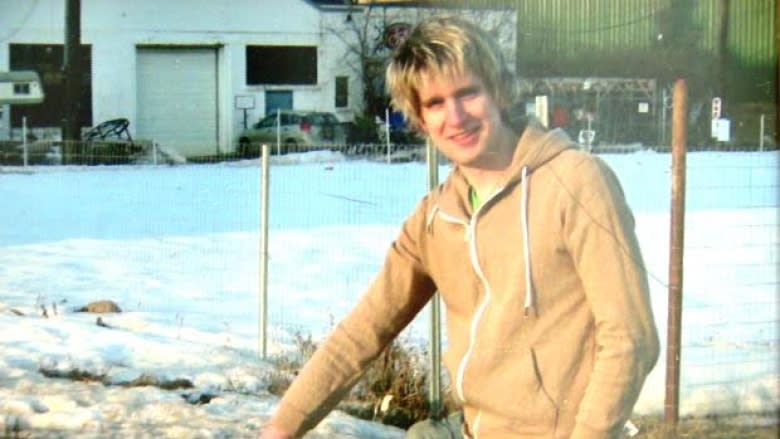Alberta moms join campaign to deluge PM with photos of opioid victims
Petra Schulz grasped a photograph of her son and carefully scrawled his name, date of birth and cause of death on the back before posting it to the prime minister.
Schulz had a simple plea for Justin Trudeau.
"I said, 'Stop the dying. Do something, prime minister.' "
Danny Schulz died of an accidental fentanyl overdose in 2014.
He was 25 when Schulz and her husband found him, lifeless and alone inside his Vancouver apartment.
He had been struggling with an addiction to prescription painkillers for years, and had suffered a fatal relapse.
Schulz's message to Trudeau is part of a larger letter-writing campaign intended to pressure the federal government to take action on the deadly opioid crisis.
Instead of using words, the campaign relies on images to bring the realities of addiction to light in Ottawa.
The 'Do Something Prime Minister Photo Campaign' is organized by Moms Stop the Harm and the Alberta Foundation for Changing the Face of Addiction.
The groups are encouraging families to mail photographs of loved ones that have died of opioid-related causes, or are in the throes of addiction, to Trudeau's office.
On the back of each photograph, they're scrawling a simple message: "Somebody's someone."
'Taking so many lives'
Schulz, who lives in Edmonton and describes her son as one of the "early victims" of the opioid epidemic, estimates that more than 500 letters have been sent since the campaign began on Nov. 4.
"The first message that we really want to send is that our children matter and many of them are dying," she said. "Our federal government, in particular our prime minister, is not paying attention to this issue.
"We are really disappointed that this is such an enormous health crisis, that is taking so many lives, and we feel it doesn't get the right attention."
According to Health Canada, 2,816 people died of apparent opioid-related causes across Canada last year.
The number of Albertans dying from fentanyl overdoses continues to rise in 2017, with nearly double the number of deaths the drug had caused in the same time period last year.
From January to April of 2017, 241 people died in Alberta as a result of fentanyl overdoses, according to quarterly report from Alberta Health.
In the second quarter of 2017, 119 people died. By comparison, 122 died in the first quarter of 2017. In 2016, 85 deaths related to fentanyl occurred in the second quarter.
When trying to humanize the grim statistics, images may be more powerful than words, said Tyla Savard, a Grande Prairie mother whose daughter is a recovering opioid addict.
Savard, a member of Moms Stop the Harm, sent a photograph of her daughter to the PM's office earlier this week. Without a federal strategy, the opioid crisis will only become more deadly, she said.
"Everyone who is affected by this epidemic is somebody's child, somebody's parent, sister or brother," Savard said.
"The more personal that you can make it, for people to have something tangible to relate to, the more understanding you're going to receive, and the more action you're going to get."
Savard believes her daughter Carissa was one of the first of a wave of young people in Grande Prairie to become addicted. Her daughter snorted her first line at age 19 and began experimenting with her friends.
That was more than four years ago, and the drug still has a powerful grip on her daughter.
While Savard acknowledges she feels survivor's remorse for families who have lost someone, she lives in fear that her daughter will become another casualty of the epidemic.
"It's pretty tough," Savard said. "You feel guilty because you still have your child.
"But at the same time you know it could be, literally in the blink of an eye, that your child could have a bad day … and you could easily be on the other side of that equation."
Listen to Edmonton AM with host Mark Connolly, weekday mornings at CBC Radio One, 93.9 FM in Edmonton. Follow the morning crew on Twitter @EdmAMCBC.



